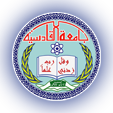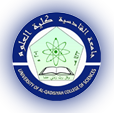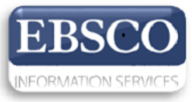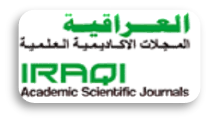Publication Ethics Statement
All articles published by QJPS follows the best practices on ethical matters, errors and restrictions. It is necessary to agree upon standards of expected ethical behavior for all parties involved: authors, editors, and reviewers. The ethic statements for our journal are based on the guidelines on the Committee on Publication Ethics (COPE) Best Practice Guidelines for Journal Editors. All authors, editors and reviewers within QJPS should adhere to the standards set out below.
Duties of Editors
- Publication decisions
- Fair play
- Confidentiality
- Disclosure, and conflicts of interest
Duties of Reviewers
- Contribution to editorial decisions
- Promptness
- Confidentiality
- Standards of objectivity
- Acknowledgement of sources
- Disclosure and conflict of interest
Duties of Authors
- Reporting standards
- Data access and retention
- Originalityand plagiarism
- Multiple, redundant or concurrent publication
- Acknowledgement of sources
- Authorship of a manuscript
- Hazards and human or animal Subjects
- Disclosure and conflicts of interest
- Fundamental errors in published works
Publisher's confirmation
Complaints/appeals
Conflict of interest
The Editor-in-Chief of QJPS is responsible for deciding which of the article to the journal should be published. The editor may be guided by the policies of the journal's editorial board and constrained by such legal requirements as shall then be in force regarding libel, copyright infringement and plagiarism. The editor may confer with other editors or reviewers in making this decision.
Submitted manuscripts are evaluated for their intellectual and methodological content without regard to race, gender, sexual orientation, religious belief, ethnic, origin, citizenship, medical specialty or political philosophy of the authors.
The editor and any editorial staff must not disclose any information about a submitted manuscript to anyone other than the corresponding author, reviewers, potential reviewers, other editorial advisers, and the publisher, as appropriate.
Unpublished materials disclosed in a submitted manuscript must not be used in an editor's own research without the explicit written consent of the author(s).
Peer review assists the editor in making editorial decisions and through the editorial communications with the author, may also assist the author in improving the paper.
Any selected referee who feels unqualified to review the research reported in a manuscript or knows that its timely review will be impossible should immediately notify the editor and excuse himself or herself from the review process so that alternative reviewers can be contacted.
Any manuscripts received for review must be treated as confidential documents. They must not be shown to or discussed with others except as authorized by the editor.
Reviews should be conducted objectively. Personal criticism of the author is inappropriate and inacceptable. Referees should express their views clearly with supporting arguments.
Reviewers should identify relevant published work that has not been cited by the authors. References to the ideas of others should be accompanied by the relevant citation. A reviewer should also call to the editor's attention any substantial similarity or overlap between the manuscript under consideration and any other published paper of which they have personal knowledge.
Privileged information or ideas obtained through peer review must be kept confidential and not used for personal advantage. Reviewers should not consider manuscripts in which they have conflicts of interest resulting from competitive, collaborative, or other relationships or connections with any of the authors, companies, or institutions connected to the submission.
Authors of reports of original research should present an accurate account of the work performed as well as an objective discussion of its significance. Underlying data should be represented accurately in the paper. Review articles should be objective, comprehensive, and accurate accounts of the state of the art. Authors should be prepared to provide public access to raw data in connection with a paper and retain such data for at least two years after publication. Fraudulent or knowingly inaccurate statements constitute unethical behavior and are unacceptable.
Authors may be asked to provide the raw data in connection with a paper for editorial review, and should be prepared to provide public access to such data and should in any event be prepared to retain such data for a reasonable time after publication.
Authors should ensure that submitted work is original and has not been published elsewhere in any language, and if the authors have used the work and/or words of others that this has been appropriately cited or quoted. Applicable copyright laws and conventions should be followed. Copyright material (e.g. tables, figures or extensive quotations) should be reproduced only with appropriate permission and acknowledgement.
An author should not in general publish manuscripts describing essentially the same research in more than one journal or primary publication. Submitting the same manuscript to more than one journal concurrently constitutes unethical publishing behavior and is unacceptable.
Proper acknowledgment of the work of others must always be given. Authors should cite publications that have been influential in determining the nature of the reported work.
Authorship should be limited to those who have made a significant contribution to the conception, design, execution, or interpretation of the reported study. All those who have made significant contributions should be listed as co-authors. Where there are others who have participated in certain substantive aspects of the research project, they should be acknowledged or listed as contributors. The corresponding author should ensure that all appropriate co-authors and no inappropriate co-authors are included on the paper, and that all co-authors have seen and approved the final version of the paper and have agreed to its submission for publication.
If the work involves chemicals, procedures or equipment that have any unusual hazards inherent in their use, the author must clearly identify these in the manuscript.
All authors should disclose in their manuscript any financial or other substantive conflict of interest that might be construed to influence the results or interpretation of their manuscript. All sources of financial support for the project should be disclosed.
When an author discovers a significant error or inaccuracy in his/her own published work, it is the author’s obligation to promptly notify the journal’s editor or publisher and cooperate with them to either retract the paper or to publish an appropriate erratum.
In cases of alleged or proven scientific misconduct, fraudulent publication or plagiarism the publisher, in close collaboration with the Editors-in-Chief, will take all appropriate measures to clarify the situation and to amend the article in question. This includes the prompt publication of an erratum or, in the most severe cases, the complete retraction of the affected work.
The Publisher and the Journal do not discriminate on the basis of age, color, religion, creed, disability, marital status, veteran status, national origin, race, gender, genetic predisposition or carrier status, sexual orientation and medical specialty in its publishing programs, services and activities.
The Publisher is committed to the availability of publications and ensures the content preservation/accessibility by partnering with the corresponding organizations.
All complaints, concerns, or appeals regarding authorship issues or the peer-review process, including concerns raised post-publication, should be addressed to the EBR Editors-in-Chief, who shall investigate the claims by first, requesting information from all parties involved and second, propose a course of action in line with academic ethical principles as outlined by the Committee on Publishing Ethics (COPE; https://publicationethics.org/). Submissions can be halted in the review or publication process until the issue are resolved. In situations, when Editors-in-Chief are involved in the complaint, the Editorial Board members, led by the most senior member, investigate the claims and propose a course of action.
Conflict of interest may arise for editors, authors, and reviewers in situations that might affect their ability to present or review work objectively. Such situations may include relevant financial interests (for example, patent ownership, stock ownership, consultancy, or speaker fees), or personal, political, or religious interests. Authors are asked to declare a conflict of interest when submitting a revised manuscript. The Editor-in-Chief will decide whether relevant conflicts of interest should be disclosed. Reviewers (subject editors) are obliged to inform the subject editor (Editor-in-Chief) of any conflict of interest as soon as such a situation becomes apparent. The Editor-in-Chief decides whether a relevant conflict of interest should be disclosed. If the Editor-in-Chief encounters a conflict of interest, he/she must withdraw from particular decisions and deputize the decisions.










